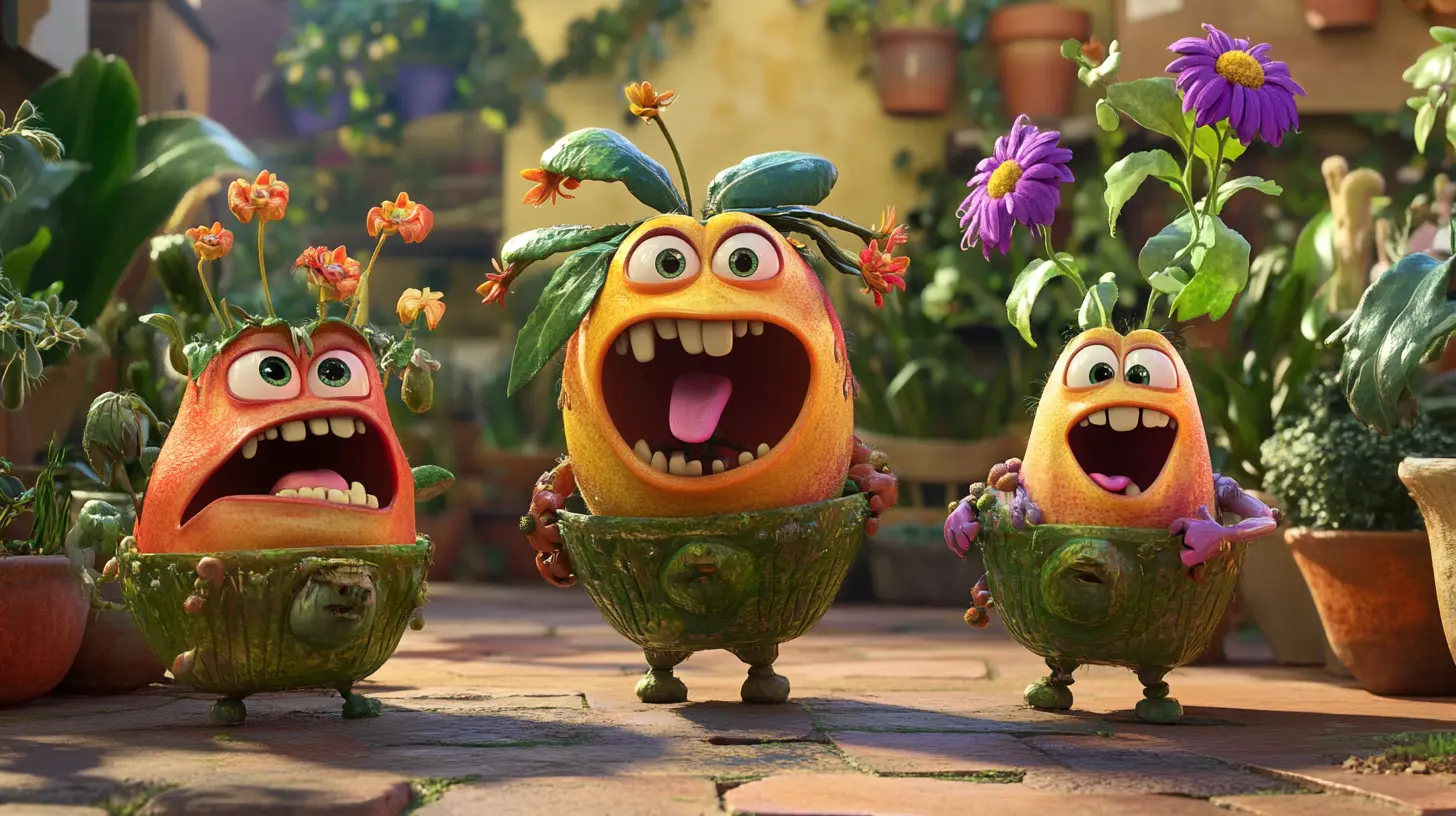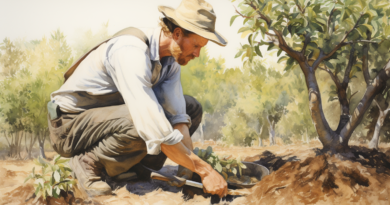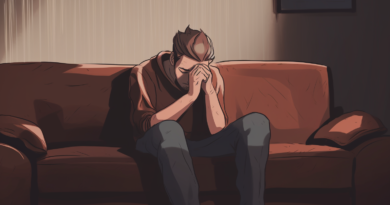A neurobiologia vegetal, campo controverso inspirado nas ideias de Darwin, revela capacidades surpreendentes das plantas. Pesquisas recentes demonstram que vegetais possuem sentidos análogos aos humanos, comunicação química complexa e comportamentos sugestivos de aprendizagem e memória. Estudos indicam reações a estímulos sonoros e respostas adaptativas, desafiando nossa compreensão tradicional da inteligência no reino vegetal. Embora o debate sobre a consciência das plantas permaneça em aberto, as evidências acumuladas abrem novas perspectivas sobre a complexidade da vida vegetal.
| Audio | |
|---|---|
Normal | Slow |
| English Transcript | Tradução |
| Hey there, and welcome to Brain Stuff! | Olá e bem-vindo ao Brain Stuff! |
| I'm Josh Clark, and this is the Brain Stuff where I explain to you whether or not plants are conscious, which is a pretty cool question. | Eu sou Josh Clark, e este é o Brain Stuff onde eu explico a você se as plantas são ou não conscientes, o que é uma pergunta bem interessante. |
| Have you ever seen that old classic Star Trek episode "A Wink of an Eye," where the Enterprise crew encounters this race of aliens that move so fast that, by comparison, the Enterprise crew seems to not move at all? | Você já viu aquele clássico episódio antigo de Star Trek, "Um Piscar de Olhos", onde a tripulação da Enterprise encontra uma raça de alienígenas que se movem tão rápido que, em comparação, a tripulação da Enterprise parece não se mover? |
| They're kind of like plants to these aliens, and just like in our reality, if you look at a plant in fast motion, you can see that it has a lot of lively movements. | Eles são como plantas para esses alienígenas, e assim como em nossa realidade, se você olhar para uma planta em movimento acelerado, pode ver que ela tem muitos movimentos animados. |
| But are they really conscious? | Mas elas são realmente conscientes? |
| That is a great question, and it was first posed by a guy named Charles Darwin, who you may have heard of at some point in time. | Essa é uma ótima pergunta, e foi proposta pela primeira vez por um cara chamado Charles Darwin, de quem você já deve ter ouvido falar em algum momento. |
| He came up with the concept of the root brain. | Ele criou o conceito do cérebro da raiz. |
| The idea behind this is that the tips of a plant's roots act as kind of a brain for it, accepting information from outside stimuli and telling the plant to act or move or do something as a reaction. | A ideia por trás disso é que as pontas das raízes de uma planta agem como uma espécie de cérebro para ela, aceitando informações de estímulos externos e dizendo à planta para agir, mover-se ou fazer algo como reação. |
| Over time, this concept led to the field of what's called plant neurobiology, and that term drives other scientists crazy. | Com o tempo, esse conceito levou ao campo do que é chamado de neurobiologia vegetal, e esse termo deixa outros cientistas loucos. |
| But TS, because this field of inquiry has yielded some pretty cool ideas about plants. | Mas fazer o quê, porque esse campo de investigação produziu algumas ideias bem legais sobre as plantas. |
| For example, we know that plants have a lot of senses that are analogous to human senses like sight, smell, sound, touch, taste. | Por exemplo, sabemos que as plantas têm muitos sentidos análogos aos sentidos humanos, como visão, olfato, audição, tato, paladar. |
| Like when a plant senses that a caterpillar is eating one of its leaves, it will produce this kind of substance that's like a mustard oil to repel the caterpillar. | Como quando uma planta sente que uma lagarta está comendo uma de suas folhas, ela produzirá uma substância parecida com um óleo de mostarda para repelir a lagarta. |
| The cool thing is, scientists have found when they play just the audio recording of a caterpillar - there's no caterpillar anywhere around - by a plant, the plant will still produce this mustard oil-like substance, which means that plants can hear in a way. | O legal é que os cientistas descobriram que quando eles reproduzem apenas a gravação de áudio de uma lagarta - não há lagarta alguma por perto - perto de uma planta, a planta ainda produzirá essa substância parecida com óleo de mostarda, o que significa que as plantas podem ouvir de certa forma. |
| That's pretty awesome, right? | Isso é bem incrível, não é? |
| This chemical signaling thing appears in plants throughout nature. | Essa coisa de sinalização química aparece nas plantas por toda a natureza. |
| The smell of fresh-cut grass is actually a signal to other grass plants that there is some sort of crazy danger afoot. | O cheiro de grama recém-cortada é na verdade um sinal para outras plantas de grama de que há algum tipo de perigo maluco por perto. |
| What's going on? | O que está acontecendo? |
| I don't know, but everybody duck! Now, the reason some scientists hate the term plant neurobiology is that plants lack neurons; hence, they can't have a neurobiology. | Não sei, mas todo mundo se abaixe! Agora, a razão pela qual alguns cientistas odeiam o termo neurobiologia vegetal é que as plantas não têm neurônios; portanto, não podem ter uma neurobiologia. |
| But this is kind of splitting hairs. | Mas isso é meio que dividir um cabelo em quatro. |
| Researchers have found that plants do have something that's like a central nervous system. | Pesquisadores descobriram que as plantas têm algo parecido com um sistema nervoso central. |
| They have glutamate receptors just like we do; we use ours to form memories. | Elas têm receptores de glutamato assim como nós; usamos os nossos para formar memórias. |
| They have neurotransmitters, and they use electricity to transfer information throughout the plant to get it to move and react. | Elas têm neurotransmissores e usam eletricidade para transferir informações por toda a planta para fazê-la se mover e reagir. |
| And some scientists have found that when you give plants drugs - yes, some scientists give plants drugs - that it can actually have weird effects on the plant's central nervous system, like they're on drugs. | E alguns cientistas descobriram que quando você dá drogas às plantas - sim, alguns cientistas dão drogas às plantas - isso pode realmente ter efeitos estranhos no sistema nervoso central da planta, como se estivessem drogadas. |
| Plants can also display learning behavior, which is another hallmark of consciousness. | As plantas também podem exibir comportamento de aprendizagem, que é outra característica da consciência. |
| For example, the Mimosa pudica plant has this cool defense mechanism where, when it senses danger, it curls its leaves inward. | Por exemplo, a planta Mimosa pudica tem esse mecanismo de defesa legal onde, quando sente perigo, enrola suas folhas para dentro. |
| But that requires a lot of energy, so the Mimosa pudica plant has evolved to not curl its leaves when it deems the stimulus non-dangerous, right? | Mas isso requer muita energia, então a Mimosa pudica evoluiu para não enrolar suas folhas quando considera o estímulo não perigoso, certo? |
| Well, scientists found that when they drop the Mimosa pudica plant, at first it'll curl its leaves, but after a few drops, it will figure out that the drop is not actually a threat and will learn to stop curling its leaves. | Bem, os cientistas descobriram que quando eles derrubam a Mimosa pudica, no início ela enrolará suas folhas, mas após algumas quedas, ela perceberá que a queda não é realmente uma ameaça e aprenderá a parar de enrolar suas folhas. |
| Even more astounding is that these plants display some sort of memory because a month later, when they're dropped again, they still won't curl their leaves. | Ainda mais surpreendente é que essas plantas demonstram algum tipo de memória porque um mês depois, quando são derrubadas novamente, elas ainda não enrolam suas folhas. |
| It's not a novel experience anymore; the plants have learned. | Não é mais uma experiência nova; as plantas aprenderam. |
| So, are plants conscious? | Então, as plantas são conscientes? |
| The jury is still out, but it's starting to look that way. | O júri ainda está deliberando, mas está começando a parecer que sim. |
| So maybe when you hear that you're supposed to talk to your plants to get them to grow more, it's not actually because of the CO2 you're breathing out onto them. | Então, talvez quando você ouve que deve falar com suas plantas para fazê-las crescer mais, não seja realmente por causa do CO2 que você está exalando sobre elas. |
| It's because they're reacting to being treated nicely. | É porque elas estão reagindo a serem tratadas com carinho. |
| This is a great episode, I know you agree, and for even more great stuff - a universe of great stuff - go to HowStuffWorks. | Este é um ótimo episódio, eu sei que você concorda, e para ainda mais coisas ótimas - um universo de coisas ótimas - vá para o HowStuffWorks. |
| You'll love it! | Você vai adorar! |
Contagem de palavras
A tabela abaixo exibe as palavras encontradas neste vídeo, bem como o número de vezes em que aparecem.
Veja também: Para que serve esta tabela?
| Freq. | Palavra | Freq. | Palavra | Freq. | Palavra |
|---|---|---|---|---|---|
| 26 | the | 26 | a | 25 | that |
| 25 | is | 22 | to | 22 | of |
| 16 | plants | 16 | it | 13 | plant |
| 12 | they | 12 | have | 11 | you |
| 11 | this | 11 | and | 10 | are |
| 9 | like | 8 | when | 8 | not |
| 7 | will | 7 | some | 7 | but |
| 6 | scientists | 6 | leaves | 5 | its |
| 5 | in | 4 | stuff | 4 | so |
| 4 | senses | 4 | move | 4 | kind |
| 4 | i | 4 | has | 4 | great |
| 4 | found | 4 | for | 4 | do |
| 4 | cool | 4 | caterpillar | 4 | can |
| 4 | brain | 4 | because | 4 | at |
| 4 | actually | 3 | which | 3 | where |
| 3 | we | 3 | there | 3 | still |
| 3 | pudica | 3 | pretty | 3 | out |
| 3 | or | 3 | on | 3 | neurobiology |
| 3 | more | 3 | mimosa | 3 | lot |
| 3 | know | 3 | just | 3 | drugs |
| 3 | curl | 3 | conscious | 3 | by |
| 2 | what | 2 | way | 2 | use |
| 2 | time | 2 | throughout | 2 | thing |
| 2 | these | 2 | them | 2 | term |
| 2 | system | 2 | substance | 2 | sort |
| 2 | something | 2 | smell | 2 | s |
| 2 | right | 2 | question | 2 | produce |
| 2 | other | 2 | oil | 2 | nervous |
| 2 | mustard | 2 | look | 2 | information |
| 2 | hear | 2 | grass | 2 | give |
| 2 | get | 2 | first | 2 | field |
| 2 | fast | 2 | example | 2 | even |
| 2 | episode | 2 | enterprise | 2 | drop |
| 2 | display | 2 | danger | 2 | crew |
| 2 | crazy | 2 | concept | 2 | central |
| 2 | as | 2 | aliens | 2 | act |
| 1 | your | 1 | yielded | 1 | yes |
| 1 | with | 1 | wink | 1 | who |
| 1 | whether | 1 | well | 1 | welcome |
| 1 | weird | 1 | was | 1 | up |
| 1 | universe | 1 | ts | 1 | trek |
| 1 | treated | 1 | transfer | 1 | touch |
| 1 | tips | 1 | threat | 1 | their |
| 1 | telling | 1 | taste | 1 | talk |
| 1 | supposed | 1 | stop | 1 | stimulus |
| 1 | stimuli | 1 | starting | 1 | star |
| 1 | splitting | 1 | sound | 1 | signaling |
| 1 | signal | 1 | sight | 1 | seen |
| 1 | seems | 1 | see | 1 | roots |
| 1 | root | 1 | researchers | 1 | requires |
| 1 | repel | 1 | recording | 1 | receptors |
| 1 | reason | 1 | really | 1 | reality |
| 1 | reaction | 1 | reacting | 1 | react |
| 1 | race | 1 | posed | 1 | point |
| 1 | play | 1 | over | 1 | outside |
| 1 | ours | 1 | our | 1 | onto |
| 1 | one | 1 | old | 1 | now |
| 1 | novel | 1 | non | 1 | no |
| 1 | nicely | 1 | neurotransmitters | 1 | neurons |
| 1 | nature | 1 | named | 1 | movements |
| 1 | motion | 1 | month | 1 | memory |
| 1 | memories | 1 | mechanism | 1 | means |
| 1 | maybe | 1 | may | 1 | love |
| 1 | lively | 1 | led | 1 | learning |
| 1 | learned | 1 | learn | 1 | later |
| 1 | lack | 1 | jury | 1 | josh |
| 1 | inward | 1 | inquiry | 1 | if |
| 1 | ideas | 1 | idea | 1 | human |
| 1 | howstuffworks | 1 | hey | 1 | hence |
| 1 | heard | 1 | he | 1 | hate |
| 1 | hallmark | 1 | hairs | 1 | guy |
| 1 | grow | 1 | going | 1 | go |
| 1 | glutamate | 1 | from | 1 | fresh |
| 1 | form | 1 | figure | 1 | few |
| 1 | eye | 1 | explain | 1 | experience |
| 1 | evolved | 1 | everybody | 1 | ever |
| 1 | energy | 1 | encounters | 1 | electricity |
| 1 | effects | 1 | eating | 1 | duck |
| 1 | drops | 1 | dropped | 1 | drives |
| 1 | defense | 1 | deems | 1 | darwin |
| 1 | dangerous | 1 | cut | 1 | curls |
| 1 | curling | 1 | consciousness | 1 | comparison |
| 1 | co | 1 | classic | 1 | clark |
| 1 | chemical | 1 | charles | 1 | cannot |
| 1 | came | 1 | called | 1 | breathing |
| 1 | being | 1 | behind | 1 | behavior |
| 1 | awesome | 1 | audio | 1 | astounding |
| 1 | around | 1 | appears | 1 | anywhere |
| 1 | anymore | 1 | another | 1 | analogous |
| 1 | an | 1 | am | 1 | also |
| 1 | all | 1 | agree | 1 | again |
| 1 | after | 1 | afoot | 1 | accepting |
| 1 | about |










